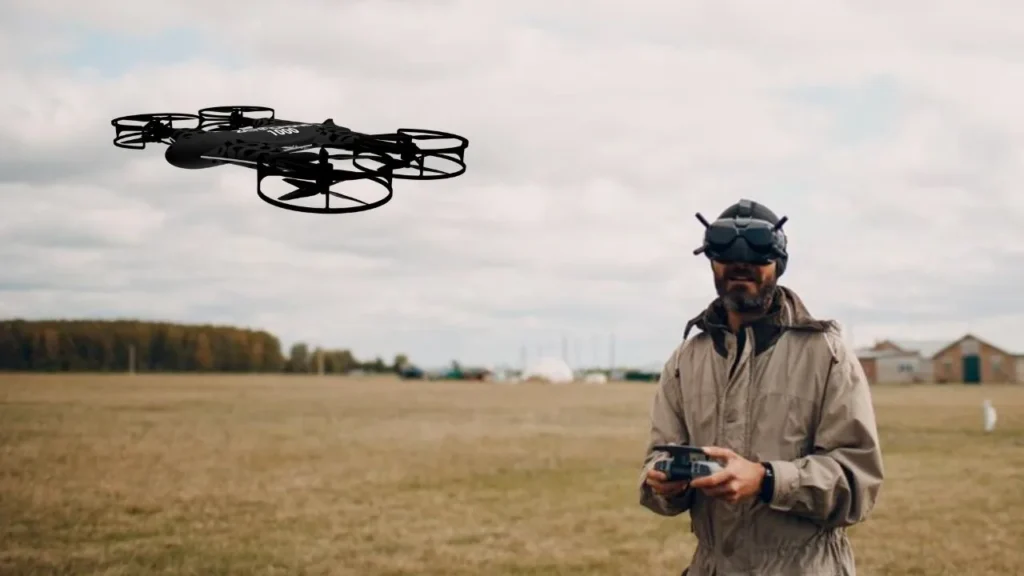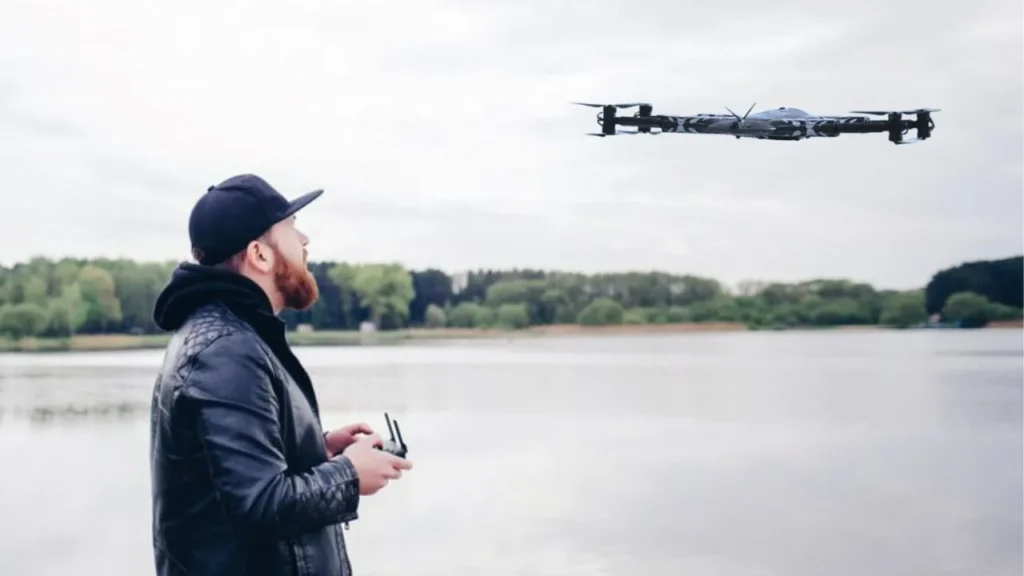
Drones have become a vital device for various industries, such as agriculture, logistics, media, power corporations, and more. With its growing market—around 7.7% since last year—this technology is an excellent aid for everyday work.
Since the market is growing, the customer base is also increasing. However, deploying a professional drone is not just like using a phone. It is like any other vehicle since it is also called an “unmanned aerial vehicle.” There are critical things to remember, like getting your drone license.
So, whether you are a hobbyist or a professional drone operator, it is crucial to learn about the requirements and answer the question, “Do you need a license to fly a drone?” That way, you can operate legally and safely. In this guide, learn everything you need to know about processing a drone license, the types available, and why it is essential for drone operators.
What Is a Drone License?
A drone license is an official certification issued by the aviation authority. It is a document that confirms that an individual may legitimately operate a drone and ensures that they know drone piloting rules and regulations.
Remember that the requirements for getting a drone license, from classifications to requirements, may vary depending on the country’s aviation rules.
For instance, in the United States, they follow the Federal Aviation Administration (FAA), the widely used aviation regulatory body. Another example is in the United Kingdom, which has the Civil Aviation Authority (CAA) to administer its licensing. Meanwhile, other countries may have similar aviation rules or use the FAA.

Do you need a license to fly a drone?
One of the frequent questions before deploying or piloting a drone is whether having a license is a must.
Depending on your circumstances, you should learn whether you need a license or not. There are three main categories of drone operators.
Hobbyists or Recreational Drone Pilots
- These are the drone pilots who solely focus on fun and non-commercial uses. Depending on the local regulations, this drone pilot may either need a full-fledged drone license or not.
- For example, in the United States, there is a Recreational UAS Safety Test (TRUST) for recreational drone pilots. It is a specialized exam that allows people to fly drones without a drone license.
- In addition, recreational drone pilots must abide by the general safety guidelines and keep drones flying below 400 feet. They should also avoid restricted airspace, such as private properties.
Commercial Drone Pilots
- A drone pilot that intends to deploy a drone for commercial purposes. They use drones in media production, photography, industrial inspections, agricultural mapping, aerial delivery, and more. Any drone deployment that involves work operations for financial gains needs a commercial drone license.
- Commercial drone pilots in the United States must get the Part 107 Remote Pilot Certificate from the FAA.
- Meanwhile, in other countries, they must also have a commercial drone license to certify them in drone work operations.
Government Drone Pilots
- Like commercial drone pilots, this type needs certification as it involves government entities. Drone pilots who work for government operations fall under the fire departments, police departments, and other similar agencies. They are also knowledgeable in securing safety protocols that involve their drone task.
How To Get A Drone License?
As mentioned earlier, every country may have different drone license procedures, rules, and regulations to abide by.
Still, here is a brief step on getting a drone license in the U.S., which is also known as a Part 107 Certificate, which is widely used worldwide.
Steps on Getting A Drone License in the U.S. (Part 107 Certification)
Anyone in the United States who plans or needs a commercial drone license may follow these steps to become a certified drone pilot under the FAA’s Part 107 regulations.
Step 1: Meet the Eligibility Requirements
- Must be at least 16 years of age.
- Must be able to read, write, and speak English.
- Must be physically and mentally fit enough to operate the drone safely.
Step 2: Pass the FAA Aeronautical Knowledge Test
- Book and do the Part 107 examination at the FAA-approved testing center.
- Examining topics involve airspace regulations, weather effects, emergency procedures, and drone safety.
- Study and research this topic to pass the exam. Study materials and online courses can help prepare for the exam.
Step 3: Complete the FAA Application Process
- Suppose one passes the FAA Aeronautical Knowledge Test. In that case, one can apply for the FAA’s Integrated Airman Certification and Rating Application or IACRA system.
- Expect that the FAA will do a background check before issuing the certification.
Step 4: Receive the Remote Pilot Certificate
- After getting approved, one may receive a temporary certificate that a permanent one will follow.
- A drone license must be renewed every two years by passing a recurrent knowledge test.
- Now, one can deploy the drone safely and legally.
Drone Licensing in Other Countries
As the process of getting a commercial drone license differs in other countries, here are some of the licensing requirements in other key regions:
- United Kingdom (CAA): Depending on the drone use, the drone operator needs to get an A2 Certificate of Competency (A2 CofC) or a General Visual Line of Sight Certificate (GVC).
- Canada (Transport Canada): The Canadian government requires drone operators to have a Basic or Advanced Pilot Certificate, which determines the complexity of a flight.
- Australia (CASA): Drone pilots must obtain a Remote Pilot License (RePL) before conducting commercial work operations.
How Important Is A Drone License?
Getting a drone license ensures a safe and legal flight. Yes, that is the core purpose of doing it, but it also brings commendable benefits for everyone involved.
Complying with the legal rules and regulations saves resources by avoiding fines. It also ensures smooth operations as one may not need to worry about legal consequences.
It also secures professional credibility. If one has a drone license, they can take clients or be hired by businesses to do drone operations. It can serve as a new skill on a professional level, which can also be a job.
If one is knowledgeable enough, it can ensure secure and responsible flying. Besides, a license can also be an advantage, especially for areas that only allow licensed drone pilots and proper authorization.
Conclusion
Getting a drone license is one step toward safe and permissible flights. Comprehending how it works and how to get it is a must, especially for commercial drone operations. Also, with the growing number of drone users, being licensed can give you an edge.
So, if you plan to get one, it is a worthwhile choice that can help you boost your drone enthusiasm.
FAQs
How long does the drone license procedure take?
The examination and procedure vary, usually taking 2-8 weeks. It depends on the test procedures and the takers’ capacity.
What are the consequences of unauthorized drone operations?
Every country has its aviation laws, which can be different. Depending on the severity of the violation, drone operators may receive fines, license suspension, revocation, or imprisonment in some countries with varying drone regulations.
